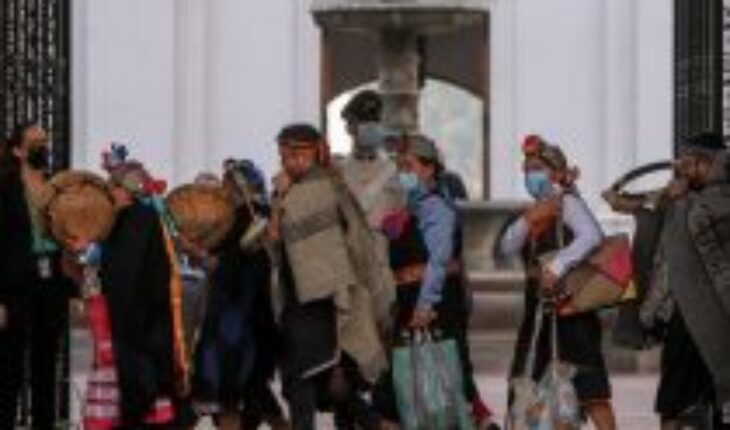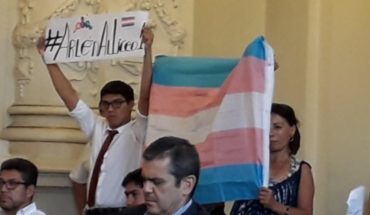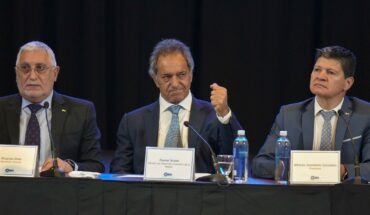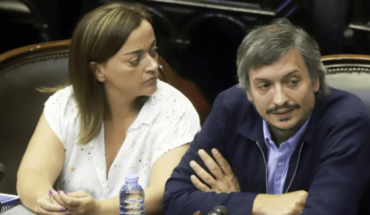In the first presidential speech before hundreds of people in the Plaza de la Constitución, after officially assuming as President of Chile, there are several very prominent issues, one of them referring to indigenous peoples, complemented by the first spiritual ceremonial in the presidential house the next day. This had never happened in any presidential change, despite having been suggested on several occasions before. The second is the clear choice for the “Latin Americanist” character indicated by the President in his first official speech. To which he added: “May the voice of the South be heard again firmly in a changing world.”
Chile’s international politics, since the return to democracy in 1990, is highly valued. The international community, very broadly, was extraordinarily supportive of our country during the military dictatorship. Mexico and Sweden, among several nations – on our continent and in Europe – remain in our memory as nations whose generosity to our exiles profoundly marked our affection. On the international stage, Chile has been prodigal in sustaining democratic commitments in favor of peace, justice and human rights, promoting and signing various treaties. And it was inserted into the international community with great success. It is clear that this policy will continue.
The President’s statements are contributors to the idea of a country – Latin America – that will deepen its relations with sister nations not only in the south but also in Central America, where remarkable relations have also developed. And in “a changing world,” Chile will emphasize its “voice” as an important part of the “voices of the south” that, in a constructive dialogue with the world and its nations, from all continents, can help emphasize that our countries – indigenous, brown, mestizo – as Pope Francis pointed out in his tours to the continent, constitute today a special reserve in a world with environmental and social crises that we can share from the ancestral experiences they form. an integral part of the plurinational composition of our societies.
The Constitutional Convention is cooperating in a relevant way in relieving this new dimension of Chile, from the voice of a people that looks towards a future of new structural changes, so that the national State values internally what has been invisible for two centuries. And all that, added to the voices of other Latin American peoples, are a political, social, economic and cultural capital that will put Chile in a place of leadership. Therefore, our international policy will be able to represent all that and more, opening the plurinational dimension to an area of diplomatic relations and experts in interculturality that are a relevant part of these “voices of the south” and that this also implies novel policies, for example, in the formation of the new professional cadres of the Andrés Bello Diplomatic Academy, where what has been invisible – such as the integration of indigenous peoples – from this new political cycle is part of an effective intercultural program, and that the appointments of indigenous diplomats is not an exception but a norm that represents, towards the immediate future, that “the voices of the south”, also represented by the ancestral peoples, they are heard very widely.
From 1810 until recently, out of just over 1,540 diplomats appointed by Chile, only 22 women held the position of ambassadors. President Bachelet in 2014 modified that, incorporating ten women for the first time in 2014. In his first Government, he had already sent a first signal in relation to indigenous peoples, by appointing – for the first time – two Mapuche women as cultural attachés, in Ecuador and Bolivia, respectively. Nothing like this has ever happened. Then, in 2014, along with maintaining the idea of an indigenous cultural attaché (in Geneva) he provided a great historical signal by appointing for the first time a Mapuche as ambassador, in Guatemala, a fact totally unprecedented in the history of Chilean diplomacy: the first indigenous, ambassador, in 210 years of republican history. President Piñera, at the beginning of his second government, in March 2018, continued this tradition already installed and appointed a second ambassador, Mapuche, in Ecuador.
Recently President Boric has given a first and magnificent signal by nominating as director of protocol in the Ministry of Foreign Affairs, to a great professional descendant of the Rapa Nui people, who amazed us in the official ceremonials of the change of command with her dress with traditional ornaments of her people. Only in Ecuador, Guatemala and Bolivia, in official ceremonial presidential change in the last 15 years, the active presence of indigenous peoples was markedly present.
For us, indigenous peoples, they are important intercultural political signals in a context of 212 years of republican history in a process of invisibilization. The Constitutional Convention today opens a wide path to do justice – as pointed out, 18 years ago, by the official report of the State of Chile on New Deal with indigenous peoples – and to recognize and value the first nations as “heritage of the Chilean Nation”. By the way, there are people who with some haste question these signals and speak of “indigenist fundamentalism” or “disproportionate ethnic influence” and even venture that “the identity of the country” is at risk. Other people point out that following this course, settlers, all kinds of minorities and corporate groups in society should also be considered as subjects who should be privileged with “special” rights. Let’s say, at least, that in this type of statement there are erroneous assessments derived from an essential formative lack to understand the value of Chile’s rich multiculturalism, denied for two centuries by historians and conservative governments. Therefore, the learning of our cultures in the educational models of Chile is still largely absent and this helps the development of this lack of understanding.
But we must move towards the new times, those of “a changing world”, as President Boric has pointed out. And an essential part of this change is precisely the valuation, recognition and integration of “the new voices of the South” in our structural policies, social and cultural, internally and internationally. The President’s speech, to that effect, is a great sign.
The content expressed in this opinion column is the sole responsibility of its author, and does not necessarily reflect the editorial line or position of El Mostrador.





